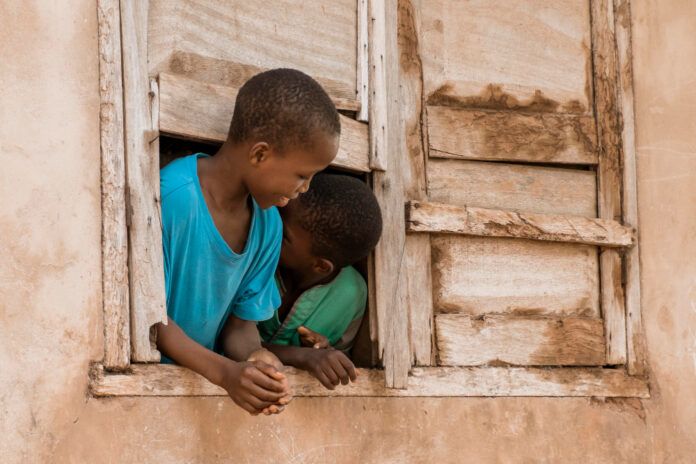Children in Darfur’s displacement camps face starvation as Sudan’s civil war fuels a severe hunger crisis, claiming lives daily
In the heart of Sudan’s Darfur, a civil war rages, devastating countless lives and now threatening to unleash the world’s worst hunger crisis, according to the United Nations. Amid this chaos, Qisma Abdirahman Ali Abubaker and her children represent a struggle for survival in the face of severe food scarcity and healthcare collapse. Tragically, three of her young children succumbed to malnutrition and disease in recent months, a stark testament to the dire conditions in Zamzam Camp for displaced people.
Zamzam, located in Northern Darfur, is the oldest and largest camp for the displaced in Sudan. It has become a grim symbol of the humanitarian catastrophe unfolding as the conflict enters its second year. Médecins Sans Frontières (MSF), one of the few international aid organizations still operating in the area, reports staggering mortality rates, with a child’s death occurring every two hours within the camp in January. They recently conducted a mass screening revealing acute malnutrition in 30% of children under five and a third of all pregnant and breastfeeding mothers.
Embed from Getty ImagesThe ongoing conflict, primarily between the Sudanese army and the paramilitary Rapid Support Forces (RSF), has severely disrupted agriculture and exacerbated the region’s vulnerability. Most local farmers, like Ms. Abubaker’s family, are unable to grow sufficient food, plunging nearly all displaced individuals into poverty and hunger. “Ninety per cent of the people are sick,” Ms. Abubaker shared, underscoring the dire lack of employment and adequate healthcare for the displaced populations.
Compounding the issue, aid delivery is fraught with challenges. Sudan’s authorities are slow to issue necessary travel permits, and military checkpoints often block vital supply routes. The World Food Programme has managed only a limited number of food convoys due to these restrictions, making a dire situation even worse.
Amidst these hardships, the Babiker Nahar Paediatric Hospital near Zamzam Camp continues to operate, its wards overflowing with malnourished children and their desperate families. The hospital, which features a therapeutic feeding centre, is one of the few remaining facilities providing critical care in the region. Dr. Ezzedine Ibrahim, a local health professional, notes that cases of malnutrition have doubled since the onset of the war, overwhelming the already fragile health system.
Images and testimonies from other camps in the region paint a similarly bleak picture. In Southern Darfur’s Kalma IDP Camp, the recent death of a three-year-old girl named Ihsan Adam Abdullah highlights the severe malnutrition affecting many children. Her story, and those of others like her, illustrate the profound human cost of the conflict and the urgent need for increased humanitarian aid.
MSF plans to open a 50-bed tent hospital in Zamzam Camp soon but stresses the necessity for a larger international response. “We need a massive mobilisation of humanitarian aid,” states Abdalla Hussein, MSF operations manager for Sudan. He calls for simplified access, including easier issuance of permits and visas and the reopening of borders, to facilitate the delivery of aid and protect humanitarian workers and infrastructure.
Without significant and immediate international intervention, the crisis in Darfur is likely to worsen, leading to the loss of many more innocent lives.
